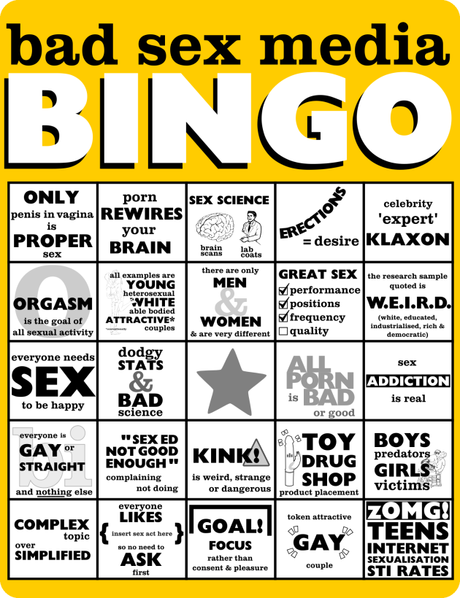Over the last week I’ve been working with a group of colleagues from Sense about Sex to put together this bingo card – and accompanying website.

We’re currently seeing a flood of programmes and related articles about sex and pornography, such as Porn on the Brain and Sex Box, as well as the sex advice columns which have become a regular feature in most national newspapers and magazines.
Those of us who work as sex researchers, sex therapists and sex educators, are aware of the vast differences in quality between the different radio and TV shows, and features, on the topic of sex. Many of them are not well grounded in the evidence around sex, relationships and sexual media. Also they often perpetuate problematic ideas about sex which we then hear from the clients and young people who we work with as counsellors or trainers.
For these reasons we decided to put together a bingo card of all the worst common messages that we see in media reporting of sex. We figured that, if people used the card, it might help them to think about the merits of the information and evidence they were viewing and reading about, as well as challenging some of the particularly common myths about sex.
For each square on the card we’ve also provided explanations about why these messages, or kinds of information, are a problem, what impact they can have on people, and how media might report these things in better ways.
Our hope is that this information will be useful to media producers and editors when producing future materials. It will help them to avoid common traps, and to produce more innovative, useful and ethical pieces.
So many of these programmes and articles focus on complaining about other media (porn, fashion, online sex ed, etc.) and perpetuating panic and anxiety about sex. Instead we would like to see media taking a positive role in providing inclusive, well-researched, thoughtful and balanced, education about sex.
